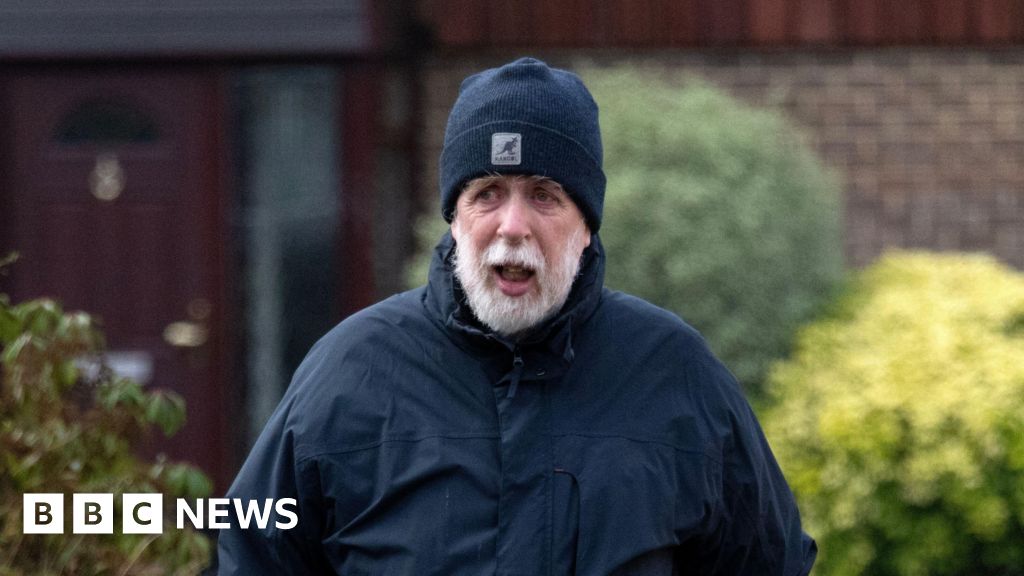- Author, Nalini Sivathasan, Lorna Acquah and Emma Simpson
- Role, BBC news
The former Fujitsu engineer who helped design the faulty Horizon software at the center of the Post Office scandal will be in the spotlight this week.
You may not have heard of Gareth Jenkins until now, but he has become a key figure in the long-running Post Office investigation.
He will be questioned during the inquiry about his involvement in the scandal, which saw more than 900 sub-postmasters wrongly prosecuted between 1999 and 2015 after Horizon errors said money was missing from branch accounts.
Mr Jenkins will testify for four days – the longest series of questions any witness has faced. This is why what he has to say is so important.
The so-called ‘architect’ of Horizon
His performance, which has been postponed twice, is eagerly awaited.
A top lawyer who worked for the Post Office once described Gareth Jenkins as an “unreliable god”, the investigation found.
“His name came up repeatedly during these hearings, often many times a day,” said David Enright, a lawyer at Howe & Co, which represents many of the victims.
He believes Mr Jenkins will be subjected to “the most robust questioning” during the investigation.
He failed to disclose bugs and remote access
Beginning in 2005, Mr. Jenkins played a critical role in helping the Post Office defend its defective computer software system in criminal and civil cases.
“He was the ‘go-to’ Fujitsu expert on its reliability,” says David Enright.
In 2010, Mr Jenkins gave evidence in the trial of Seema Misra at Guildford Crown Court.
She told the BBC: “I was naive at the time. I thought it was a good thing that he worked for Fujitsu, because he knew the system inside and out.
“If something went wrong in Horizon, he would have seen it.”
What Ms. Misra did not know was that shortly before the trial, Mr. Jenkins had noticed a bug affecting dozens of branch accounts, and had suggested remote access to their computer terminals as a way to solve the problem.
Mr Jenkins did not disclose this in court. Ms Misra was found guilty of theft and false accounting and was sent to prison while she was pregnant.
If the problems had been exposed at the time, all prosecutions could have been stopped.
Two years later, lawyers for Subpostmaster Kim Wylie asked about remote access. Mr Jenkins sought advice on what to say and warned a Post Office lawyer that including this option could lead to greater scrutiny.
His final witness statement confirmed that this could happen, and in his final version he went on to say that changing branch accounts in this way was rare and had to be approved by the Post Office.
He was supposed to be impartial in court
Mr. Jenkins appeared as an expert witness in a number of Post Office prosecutions of sub-postmasters.
The law stipulates that expert witnesses must be independent and unbiased. But the investigation has uncovered evidence that lawyers never properly instructed Mr Jenkins on his duties.
Documents obtained by the BBC earlier this year show that a Post Office prosecutor suggested Mr Jenkins reword some of his court testimony against Seema Misra, reinforcing his claims about Horizon’s robustness.
IT expert Jason Coyne, who was once used as an expert witness in a Post Office case, believes Mr Jenkins was someone who could ‘control’ the Post Office.
“We sometimes call people ‘hired guns’. There is a risk, that is what the Post Office tried to do with him,” Mr Coyne said.
The BBC has learned that Mr Jenkins was involved in at least 15 Post Office investigations.
From ‘contaminated’ witness to ‘shadow expert’
In 2012, independent forensic investigators Second Sight were called in to investigate the Horizon system.
At the time, they praised Mr Jenkins’ “excellent” expertise – without knowing it that his evidence was used in the courts.
However, shortly after their interim report, which revealed several bugs, the Post Office received legal advice warning that Mr Jenkins’ previous omissions had “fatally undermined” his credibility as an expert witness and that they should stop using from him.
But Mr. Jenkins remained a key figure behind the scenes.
He provided technical support and information to witnesses who testified at Bates v. Post Office’s trial in 2019, despite not being called to testify.
During the trial, lawyers representing subpostmasters labeled him a “shadow expert”: someone who advises but does not testify in court.
The Post Office was criticized for failing to acknowledge that his absence may have been related to concerns about his evidence in the previous criminal prosecutions.
The judge, Mr Justice Fraser, recommended that the head of the Crown Prosecution Service open a perjury investigation against Mr Jenkins.
His expertise came at a price
As part of the contract with the Post Office, Fujitsu provided support in legal cases involving the Horizon system.
But that didn’t always cover Mr. Jenkins’ work, so the Post Office had to pay extra.
The investigation found that costs were sometimes a factor in whether the Post Office adequately investigated concerns about shortages in sub-postmaster departments.
When Sub-Postmaster Grant Allen experienced a £3,000 shortage at his Cheshire branch, a lawyer working for the Post Office asked Mr Jenkins for an estimate for two days of data analysis.
Emails from December 2012 released by the inquiry show Mr Jenkins replied: “data up to seven years is freely available. Two days of my time cost about $2,000 to $2.5,000.”
The decision to conduct the data analysis was ultimately rejected.
The BBC submitted the contents of this story to Mr Jenkins. A lawyer representing him said it would be “inappropriate” for him to comment before testifying at the inquiry.
The Post Office said it had issued a “sincere apology” to the victims and “remained focused” on supporting the ongoing investigation.
Fujitsu declined to answer the BBC’s specific questions but said it considers “this matter with the utmost seriousness.”
